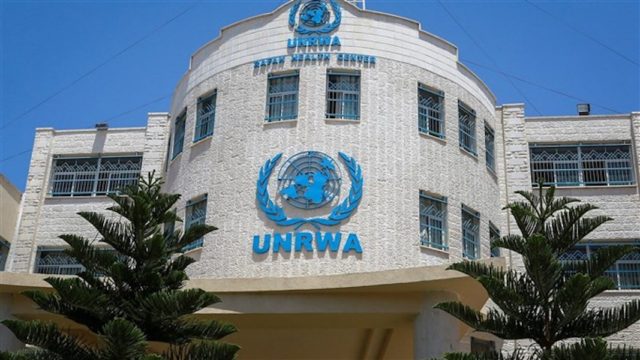The House Appropriations Committee this month approved the annual foreign aid bill on a party-line vote. The proposal includes the Biden administration’s full request to provide at least $150 million, with no strings attached, to the United Nations Relief and Works Agency. The proposal is highly controversial, with scrutiny growing over the organization’s ties to terrorist entities in Gaza. As Senate appropriators eye their own markup, now is not the time for blank checks. Members of both parties should demand much-needed changes.
The urgent need for reform and oversight of UNRWA has been obvious for years. The organization has inflated its registry by falsely accepting the descendants of refugees into its ranks. This has led to bloated budgets and the needless perpetuation of the Palestinian-Israeli conflict.
But the need for reform became increasingly obvious in the wake of the recent Gaza war. The drama began when the guns fell silent. Matthias Schmale, the director of operations for UNRWA in Gaza, told Israel’s Channel 12 that Israeli military operations during the war were carried out with “sophistication” and “precision.” This ran counter to the Hamas narrative that Israel was attacking Gaza indiscriminately. Indeed, Schmale was confirming that Israel operated within bounds of international law during the war.
Schmale also noted, to the surprise of the Israeli anchor interviewing him, that during “the 11 days of war, we did not run out of food, water, and supplies …. So, from my point of view, there is no acute or serious shortage of medical supplies, food, or water.” Again, this was not the Hamas narrative.
Finally, Schmale ceded that UNRWA “cannot work in a place like Gaza without coordinating with the local authorities [Hamas]; that’s true for any autocratic regime of this nature.” This was the real bombshell. Schmale’s interview acknowledged that UNRWA was actively coordinating with Hamas — a terrorist group pursuant to the laws of most Western countries that support his agency.
Not surprisingly, Hamas authorities soon declared Schmale to be persona non grata in the Gaza Strip. He had broken ranks. His organization for more than a decade had toed the Hamas line, parroting the organization’s false accusations against Israel and pretending that its operations inside the Gaza Strip were not structured as a quid pro quo. UNRWA has some serious explaining to do. And Congress should be posing tough questions.
But the controversy did not end there. On June 4, the agency issued a statement asserting that the Israeli Air Force had conducted airstrikes on a UNRWA school in the Gaza Strip between May 13 and May 15. Predictably, the agency chided Israel for attacking a U.N. installation (even though there were no deaths or injuries). But the statement also went on to note something very damning to Hamas and to UNRWA itself.
“While investigating how to secure the building from the missile, a detailed assessment on 31 May 2021 revealed what appears to be a cavity and a possible tunnel, at the location of the missile strike. The depth of the cavity is approximately 7.5 meters below the surface of the school. UNRWA discovered the existence of a possible tunnel in the context of the investigation of the fired missile,” the statement said.
UNRWA then stated that it “condemns the existence and potential use by Palestinian armed groups of such tunnels underneath its schools in the strongest possible terms. It is unacceptable that students and staff be placed at risk in such a way.”
UNRWA called on “all parties” to halt such activities and noted that letters of protest had been sent.
What was remarkable about this statement was that it contradicted years of UNRWA policy. The Israelis have consistently complained that Hamas has used the schools as cover for its military activity — whether launching rockets from the perimeter of UNRWA schools, employing Hamas operatives to teach students terrorist ideology, or obscuring tunnels beneath their structures. UNRWA has historically denied all of it. Until now. The June 4 statement finally admitted that a UNRWA school was being used as a human shield for Hamas tunnels.
Now is the time for Congress to fix UNRWA’s Hamas problem. How? That part is easy.
Bilateral assistance provided through the U.S. Agency for International Development is already subject to strict terrorist vetting protocols. Individuals associated with potential prime and subprime contractors are screened by the U.S. intelligence community. The same standard, however, does not apply to multilateral assistance provided to UNRWA.
Congress can change that quickly by tying aid to UNRWA to a simple requirement: UNRWA must first submit information about would-be beneficiaries and contractors to the State Department for terror vetting — and only release funds after receiving a stamp of approval.
None of this will solve the problem of UNRWA’s bloated budgets and falsely registered refugees. That’s a systemic problem that will require a more concerted effort to solve. But in the interim, there exists the possibility of purging terrorists from UNRWA’s infrastructure. UNRWA has inadvertently opened the door. Congress needs to walk through it.
Jonathan Schanzer is senior vice president for the Foundation for Defense of Democracies and Richard Goldberg is senior adviser at FDD. This article was originally posted to pundicity.com.


